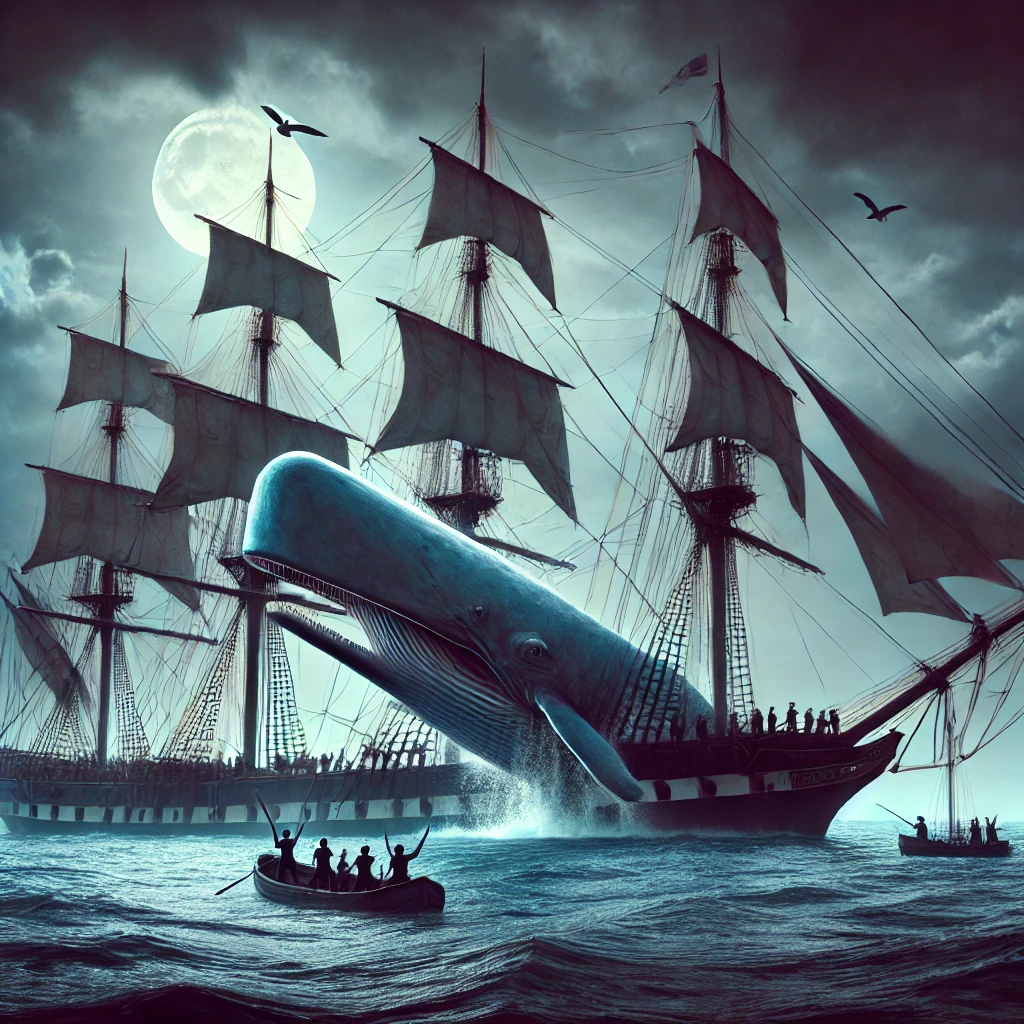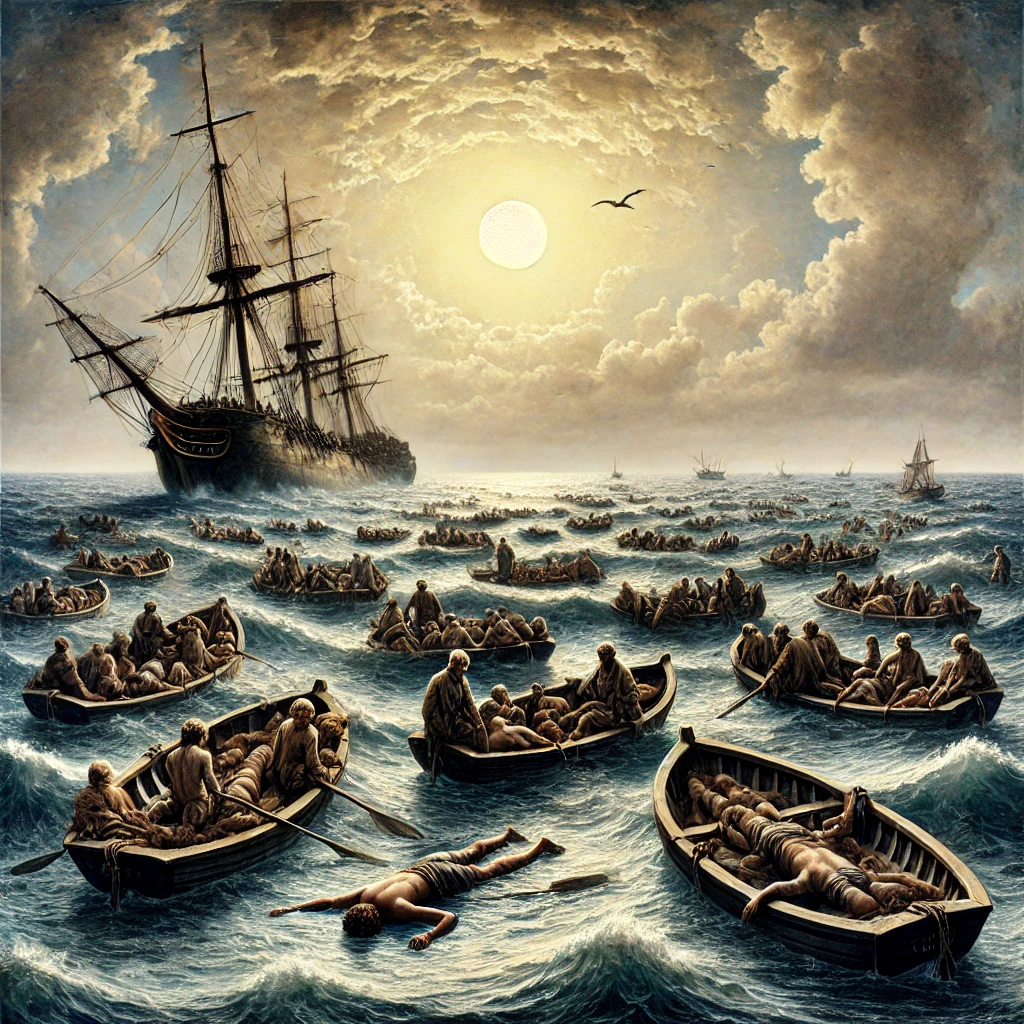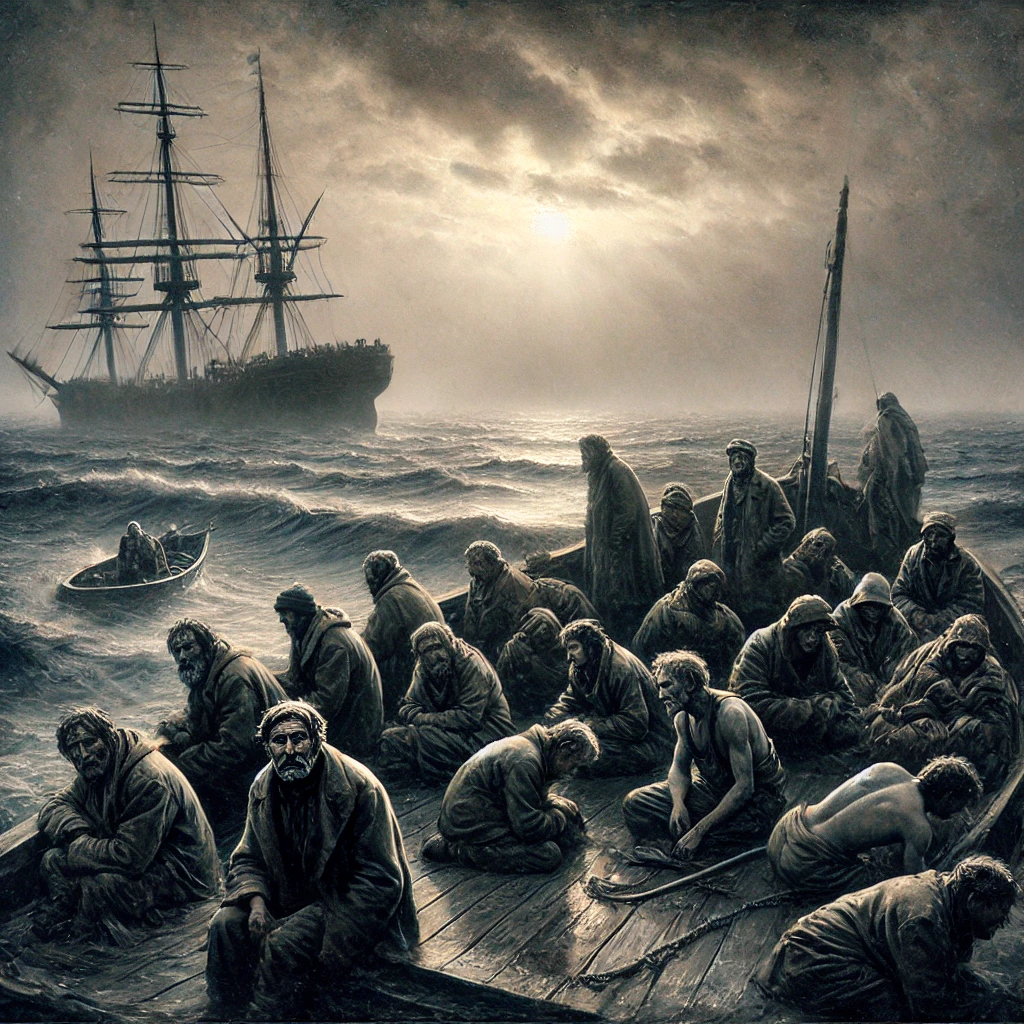On November 20th, 1820, a maritime disaster unfolded that would inspire one of literature’s greatest works, Herman Melville’s Moby-Dick. The whaleship Essex, sailing in the South Pacific, was struck and sunk by an 80-ton sperm whale, an event that would become a harrowing tale of survival etched into maritime history. This incident not only highlights the dangers of whaling during that era but also delves into the profound relationship between humans and the unpredictable forces of nature.

The Voyage of the Essex
The Essex, a whaling ship based in Nantucket, Massachusetts, embarked on a voyage to hunt sperm whales, which were highly sought after for their valuable oil. The ship’s crew, consisting of 21 men, set sail with hopes of a prosperous journey. However, their mission took a disastrous turn when they encountered a formidable and aggressive whale. On that fateful day, the Essex was rammed by the sperm whale, causing catastrophic damage and ultimately leading to its sinking.
The crew faced immediate peril as they scrambled to save themselves from the sinking ship. Stranded in the vast expanse of the Pacific Ocean, the men were forced to confront the grim realities of survival. With limited provisions and no land in sight, they faced the harrowing challenges of exposure, starvation, and despair. The struggle for survival became a test of human resilience and ingenuity as they devised makeshift rafts and rationed their supplies.

A Harrowing Tale of Survival
The aftermath of the Essex sinking led to a desperate fight for survival for the crew members. Stranded on the open sea, they faced dire conditions, and the situation quickly became desperate. The survivors were forced to make unimaginable choices, including resorting to cannibalism in their fight against starvation. The harrowing experiences of the crew were chronicled by survivor Owen Chase in his narrative, providing a chilling account of their ordeal.
After weeks adrift, only a handful of the original crew members were rescued. The story of the Essex captured public attention and sparked interest in the whaling industry, as well as the dangers faced by sailors during this perilous time. Melville’s later work, Moby-Dick, drew inspiration from the events surrounding the Essex, exploring themes of obsession, the struggle against nature, and the moral complexities of whaling.
The Legacy of the Essex

The sinking of the Essex and the subsequent tale of survival left a lasting impact on maritime history and literature. It became a cautionary tale about the perils of whaling and the unpredictability of the ocean. The story also raised awareness about the ethical considerations surrounding whaling practices, leading to ongoing discussions about the treatment of whales and the sustainability of marine resources.
Today, the legacy of the Essex continues to resonate, not only as a historical event but also as a profound narrative exploring the human spirit’s capacity for endurance in the face of adversity. The tragedy serves as a reminder of the complex relationship between humanity and the natural world, highlighting the risks involved in human endeavors and the consequences of exploiting nature’s resources.
The real-life event that inspired Herman Melville’s Moby-Dick on November 20th, 1820, when the whaleship Essex was attacked and sunk by a sperm whale, remains a significant chapter in maritime history. This harrowing tale of survival reflects the challenges faced by sailors in the whaling industry and emphasizes the moral dilemmas associated with their pursuits. As we reflect on the legacy of the Essex, we honor the resilience of its crew and recognize the broader implications of their experience in understanding humanity’s relationship with nature. The story of the Essex serves as both a cautionary tale and a testament to the enduring power of survival against insurmountable odds.
